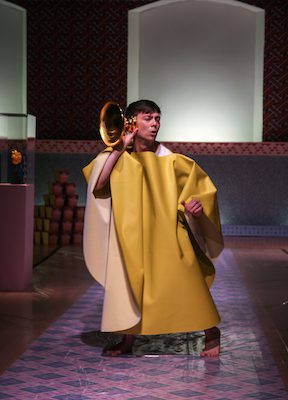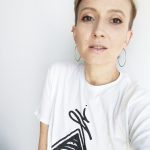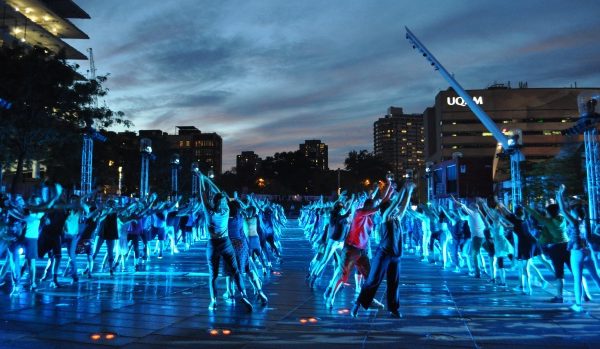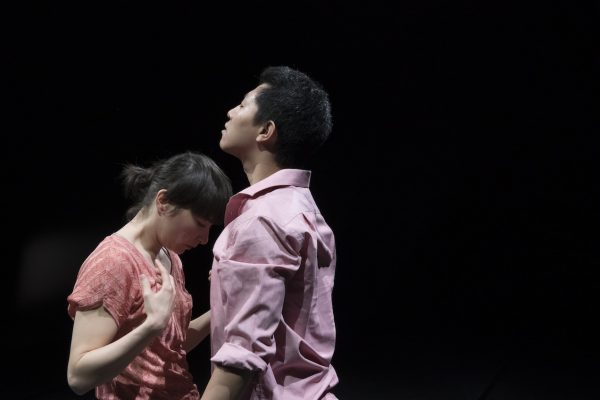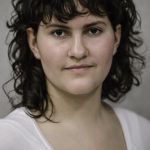Celebrated Montréal-based live artist and choreographer Dana Michel’s new piece, CUTLASS SPRING, premiered in Europe this spring and debuted in Canada at the Festival TransAmériques. In conversation with Philip Szporer, Michel reveals her process in creating the work, “locating [her] sexual identity within a multitude of complementary and seemingly contradictory identities” and what she’s really after.
~
Philip Szporer As a title, CUTLASS SPRING evokes many images. Describe how it came to be.
Dana Michel The title came to me when I was walking by a corner store in Brooklyn and saw a display of Irish Spring soap in the window. A few months before that, I was watching a bunch of different soca, calypso and dub videos. This song and that title jumped out, and I thought, ‘Ooohh, that’s a good one.’ There’s power to the way that cutlass sounds. And it sounds kind of sexy.
Cutlass is a large tool for clearing vegetation, and it brings me to the islands directly. My family in St. Lucia all worked in the fields, especially my grandfather, this super-powerful man.
PS That history is potent.
DM I’m constantly trying to figure out my story — what my parents’ story is. There’s not a lot of talking about history. One of the ways I do this figuring is digging through our stuff, hunting in my family’s house for artifacts. I found a bunch of Irish Spring soap in a box in the basement, amongst my dad’s tools and motor oil. I grew up with him wearing this soap. There’s also this ‘masculine scent.’ (She grunts, and laughs.) What the hell does that mean? I went back and watched those old commercials. This is part of my foundation — the hypersensual, thick air of the eighties. Watching this commercial is like an epic mini sex-macho film.
Googling ‘cutlass,’ the first thing that comes up is the car. Well, my dad had this car when I was growing up. Also, Googling ‘Irish Spring’ brought up this thinking about Irish women having a reputation for frigidity. And because I’m making a piece around sex, the arrows all pointed in the right direction.
One last thing, this is spring and I’m going through changes in my life. Spring sounds like evolution to me. Making space for new ideas and new being.
PS I read in the festival materials on CUTLASS SPRING that your son’s preschool workshop on sexuality inspired you to explore the idea of repression.
DM An educator at his daycare, a big, powerful woman, quite evolved, super-open, who studied early childhood education and human sexuality, took it upon herself to give the kids in her class, aged three to five, weekly sex-ed workshops. Roscoe was three or four. Kids were going in the bathroom and looking at their stuff, getting experimental to the point that she said, ‘We better start having classes.’ This was very exciting for me. But he started coming home with information that was not satisfactory, and backwards, about where babies come from, and talking about gender. They had an exercise where they had to colour their brains. Boys were blue and girls pink. Super-disturbing.
I have also always wanted to take human sexuality classes. I’ve been really obsessed with this. Every once in a while, I think maybe I’ll become a sexologist or a psychologist. On my big list of desires, there is a master’s in human sexuality. A few years ago, I realized that choreography or making art is my way of touching all of these projects that I’d like to get my hands onto.
PS Talk about the trajectory of repression and connecting with others.
DM I’m a highly sensitive person, a deep empath. Always have been. It means I make a lot of connections to people all the time. I grew up as a different person in my neighbourhood and my school, even in my family. I was the first Canadian-born [kin]. I’m used to being the different one, the one that needs to blend or the one that can’t quite fit in. That sensitivity makes for a person who notices difference and wants more for people who are different. We are all different, and we could all use space and spectrum, to let light shine out.
PS Do audience members influence the way that you work?
DM A comment that comes back is that people think I’m unaware that anyone else is there, which is impossible. I know that when I am watching performances, I want the space and freedom to look at things for as long as I want. Performance is a privileged moment of being able to really look at a person. What I am trying to propose is a kind of intimacy. I am saying, you can look at me, but there’s only so much I can handle as a human looking at you looking at me like that. So yes, I give myself permission to disappear into this space that I have created for myself. But it’s not a vacuum either. It’s very porous. I’m very aware that a looking is happening. It gets more concrete. I’m going to look at someone’s sweater; I can hear the coughs, the clearing of throats. I allow that into what’s happening in the moment. [All of] that is shaping the work that I am making.
Tagged: Contemporary, Dana Michel, On the Ground, Canada , Montréal , QC
